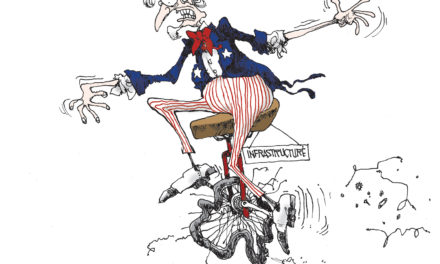Whatever your political persuasion, as Memphians, you should be closely watching the budget moving through the U.S. Congress. It could spell big problems for our city.
The political dynamics of the Capitol have been shifting from cities to states in the past six years or so, and as a result, the financial lifelines that have been so critical for cities are now being treated as disposable, if not the cities themselves.
So far, areas which have been targeted for proposed budget cuts are housing, Medicaid, environment, community development and education. These just happen to be areas that are critical to Memphis. Cuts proposed would be 6 percent now, but would increase to 14 percent in five years. That’s a total of $212 billion in reductions. These have always been lumped as “discretionary” spending and never has the term seemed so apt.
While some in Washington have held up spending cuts to the Department of Agriculture as proof that there are no sacred cows, they don’t mention that 70 percent of the $10 billion in cuts are proposed by reducing the number of families qualifying for food stamps.
As Neal Peirce wrote recently, we are beginning an era of seriously curtailed housing assistance, less food for the needy, less job training, less student aid, less environmental protection and less medical care.
Urban interests won a battle when it kept CBDG (Community Development Block Grants) from being moved from HUD. However, it may end up a Pyrrhic victory, because it remains on the chopping block for cuts. Meanwhile, there have been proposals to cut 250,00 vouchers in Section 8 housing in the coming fiscal year and 800,000 within four years.
Funding for Hope VI programs remains on the butcher block, an annual target for the White House. This program has been pivotal to key Memphis projects undertaken by Robert Lipscomb, director of housing and community development and Memphis Housing Authority, such as Uptown and Lamar Terrace. These funds actually save public money by attracting private money that has been leveraged for Memphis’ most spectacular neighborhood redevelopment programs.
Oh, yes, in case you are wondering, defense spending will rise $185 billion over five years, not counting the cost of the war in Iraq.
With Tennessee’s senior senator as majority leader, there isn’t a better time to notify Senator Frist that the final budget must not abandon the needs of cities, which are after all the economic engines for our entire national economy.




